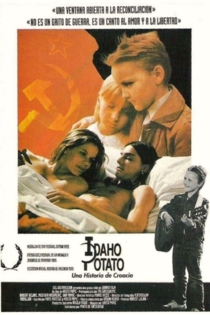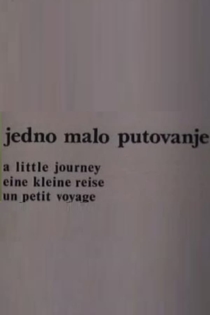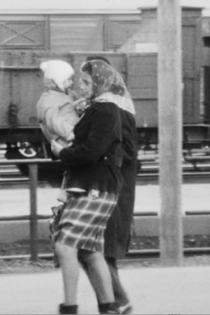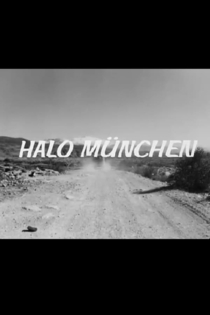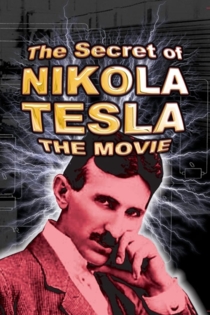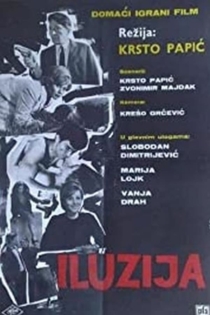
Krsto Papić
1933 - 2013Papić was born in Vučji Do, near Nikšić in today's Montenegro. His early feature films and documentaries were part of Croatian and Yugoslav New Cinema, and often regarded as Croatian echo of the Black Wave artistic movement that mostly took place within Serbia. Additionally, Papić himself was connected to the Croatian Spring political movement during the early 1970s. He was the member of the Zagreb filmophile circle influenced by the French New Wave, so-called "Hitchcockians", along with film-makers and critics Ante Peterlić, Zoran Tadić, Branko Ivanda, Petar Krelja and centered around film critics Vladimir Vuković and Hrvoje Lisinski. Papić's two best-known early feature films, Lisice and Predstava Hamleta u Mrduši Donjoj, were often attacked from the government sources. Lisice did not get permission to represent Yugoslavia in the Cannes Film Festival, so it entered Quinzaine program in 1970.Izbavitelj was heavily criticised by Stipe Šuvar, who alluded that film's allegory about Fascism actually also refers to the Communism.
Papić's subsequent feature films were more classical in its narration, but again politically controversial in the last decade of Yugoslavia. Particularly My Uncle's Legacy, critical picture of Yugoslavia's political situation under titoism during Informbiro period, which won nomination for Golden Globe in 1989, has been surrounded by controversy and political attacks from traditional Party circles and especially Partisan Veterans' organisations, so the production was delayed for couple of years, but achieved due to support of intellectuals, newspapers and Party fractions in the time of disolvement and fight among Party fractions in last years of the Yugoslav federation.
Papić was awarded with Croatia's highest Vladimir Nazor Award for live achievement in cinema in 2006, and with Grand Prix Special des Amériques at the Montreal Film Festival in 2004.
Druga strana Wellesa
Leon Rizmaul, Daniel Rafaelić
Orson Welles, Alma Prica
Film The Other Side of Welles portrays the life, work and intellectual heritage of Orson Welles in Yugoslavian federal unit "Socialist Republic of Croatia". Through the period of 25 years, he appeared as actor in several co productions made in Croatia (David and Goliath, Tartars, Austerlitz) - acted in few Yugoslavian film (Battle of Neretva, The Secret of Nicola Tesla) and directed two of his own film: The Trial and The Deep. As a Hollywood maverick, in Croatia he often found his shelter. Through the never before seen archive materials and the interviews with the people who worked with him, directors of this film, in the 90th anniversary of his birth and 20th of his passing, reveal the other side of Orson Welles
The Other Side of Welles
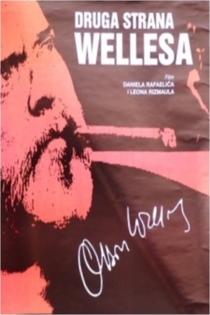
Mala seoska priredba
Krsto Papić
A showcase of performances in a Međimurje village Orahovica in which various local performers sing then-popular light melodies, dance folk dances, exchange jokes, and the ceremony is crowned by the selection of the local Miss 1971.
A Little Village Performance
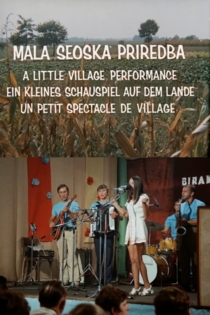
Kad te moja čakija ubode
Krsto Papić
Shot in various villages throughout Yugoslavia, this is a disturbing document of a time when people were stabbing each other with knives without any real reason. Murderers, people who witness these murders and the families of victims all talk about the senseless violence and the human condition.
When My Knife Strikes You
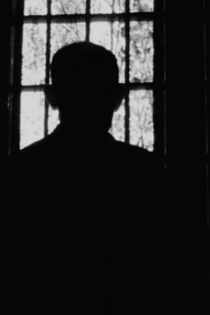
Kad mrtvi zapjevaju
Krsto Papić
Ivo Gregurević, Ivica Vidović
At the beginning of 1990s, two Croatian emigrants, economically minded Cinco and politically minded Marinko, arrive in Croatia from Germany, homesick for their families and hometowns. In order to get a German pension, Cinco pretends to be dead and travels in a coffin. Soon, Marinko joins him because he is running away from an old agent of the Yugoslav State Security Service. On their trip in a motor hearse, Cinco and Marinko face many adventures, which culminate when they are stopped at Serbian barricades close to their destination.
When the Dead Start Singing
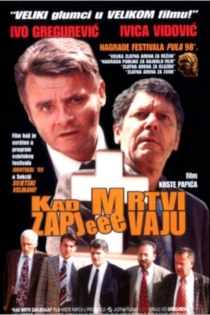
Handcuffs
Krsto Papić
Fabijan Šovagović, Adem Čejvan
Yugoslavia, 1948, the year of Inform Bureau's resolution and Tito's break-up with Stalin. The story takes place during a wedding in the Dalmatian inland in Croatia. Ante marries a much younger woman, Visnja; the groom's godfather is Andrija, the partisan war hero born in this very village, and a member of the new Communist political establishment. Two members of the Yugoslav State Security crash the traditional wedding ceremony. In the growing atmosphere of fear nobody knows who will be arrested.
Handcuffs
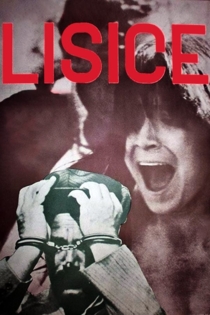
My Uncle's Legacy
Krsto Papić
Davor Janjić, Alma Prica
In this politically charged drama, the turbulent times just following Marshal Tito's rejection of ties to Moscow comes to life. Interestingly, even in the first few years after the Yugoslavian leader's death, the subject matter of this film was considered too hot to handle, and the director had to appeal to the courts for permission to shoot it. In the story, Martin is a schoolboy with a sense of the absurd and a willingness to use ridicule to amuse himself and his classmates. He has an uncle who is high up in the nation's bureaucracy who protects him and his grandfather now that his father has died. His grandfather is too stubborn to give his farm to the local farming collective, and Martin himself is in hot water with the principal for making fun of his girlfriend, one of the students at the high school. However, as long as the uncle is able to protect them, they remain out of hot water.
My Uncle's Legacy
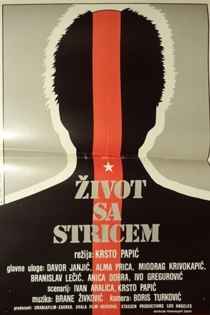
Predstava Hamleta u Mrduši Donjoj
Krsto Papić
Rade Šerbedžija, Milena Dravić
A corrupt village commissar insists on mounting a production of Hamlet. The clever local teacher, however, casts the son of a man framed for theft as Hamlet, and the commissar as the usurping king, leading to a climax of truly Shakespearean proportions.
A Performance of Hamlet in the Village of Mrdusa Donja
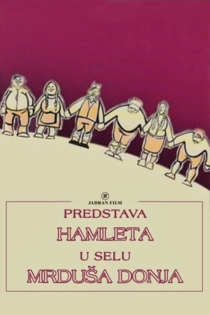
Ključ
Krsto Papić, Antun Vrdoljak
Božidar Boban, Jagoda Kaloper
Segment "Duga ulica" (A Long Street): A young man named Boris and a girl, Vera, live in the same neighborhood. They meet one night when she loses her key. Boris invites her to spend the night at his place; Segment "Čekati" (To Wait): Married students, Ivan and Sonja, live in an old woman's apartment. She is sick and the couple hopes that she will die soon, so that they may inherit her apartment; Segment "Poslije predstave" (After the Play): A husband and a wife lose the key to their apartment and have to spend the night in a hotel. The experience is wonderful and renews their feelings for each other, if only for a night.
The Key
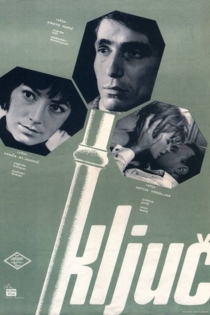
Priča iz Hrvatske
Krsto Papić
Ivo Gregurević, Mustafa Nadarević
After the breaking of mass movements in 1971., the student Ilija Baric must leave the country because of his political beliefs, and his father Luka lost a job and goes to work to Germany. After Titos death in 1980. there is a new political motion, but repression is still strong. That feels even decennial John, the brother of Ilija, who is in love with Marina, the daughter of the Head of the police and Communist Andrew.
Story from Croatia
